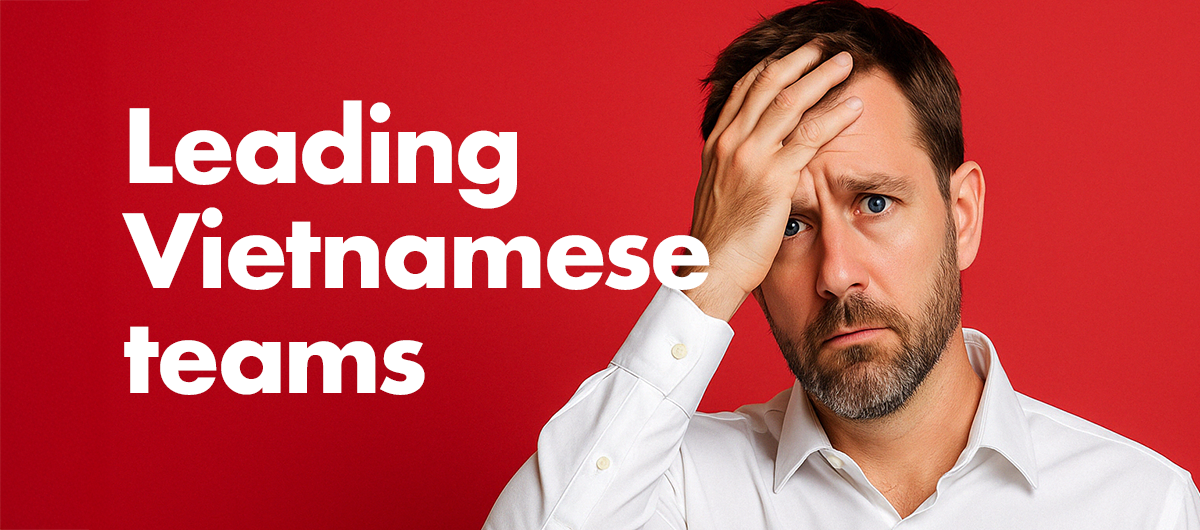Leadership styles don’t always translate seamlessly across cultures—and Vietnam is no exception. Western expat leaders often arrive with a direct, results-oriented mindset, only to find that their style may be met with polite smiles but limited engagement. Beneath the surface, a rich cultural framework shapes Vietnamese workplace dynamics.
In Vietnamese business culture, respect for hierarchy, collective harmony, and indirect communication are highly valued. This means employees may avoid openly disagreeing with their superiors, even when something is wrong. It’s not dishonesty—it’s respect. Misreading this can lead to frustration or, worse, team breakdown.
To lead effectively in Vietnam, you’ll need to adapt—not abandon—your leadership style. Start by focusing on building relationship trust before task trust. Don’t expect staff to speak freely in large meetings straight away. Instead, create space for 1:1 discussions where junior staff can share their insights more comfortably.
Tone, humility, and consistency go a long way. Praise in public, critique in private. Be patient with slower decision-making; it’s often a form of consensus-building behind the scenes. Consider engaging a bilingual leadership coach or HR consultant to bridge cultural gaps within your team.
Want deeper cultural fluency? Resources like Vietnamese for Business and Intercultural Coaching Institute offer tools and training for global executives adapting to Southeast Asia.
Five takeaways:
- Vietnamese staff may prioritise harmony over directness—read between the lines.
- Hierarchy matters—respect titles and roles.
- Building trust takes time but delivers loyalty in return.
- Cultural coaching can dramatically improve team cohesion and leadership confidence.
- Adapting your style isn’t weakness—it’s strategic leadership.
Five “Do This” actions:
- Schedule regular 1:1 meetings with your team to build relationship trust away from group settings.
- Learn how to say “thank you” and “good job” in Vietnamese—start with “Cảm ơn, bạn làm tốt lắm” (pronounced: gahm un, ban lam tot lam).
- Attend a local intercultural leadership workshop or coaching session.
- Ask your HR department (or create one if it’s your startup) to translate workplace policies into Vietnamese to ensure clarity and inclusiveness.
- Reflect on your leadership values—what’s flexible, and what’s non-negotiable? Bring those insights into your next coaching conversation.
Want to organise some coaching with me? To book a session, please email me with a few times that work for you. Once we’ve agreed on a time, I’ll send you a calendar invite. If you prefer a faster option, I can also give you access to my private booking calendar.


Comments
4 responses to “Leading Vietnamese teams: How to build trust and deliver results”
[…] Leading Vietnamese teams with confidence […]
[…] Leading Vietnamese teams with confidence […]
[…] Leading Vietnamese teams with confidence […]
[…] Leading Vietnamese teams with confidence […]